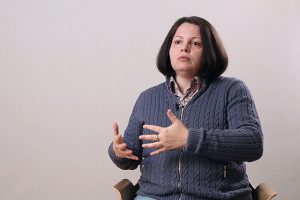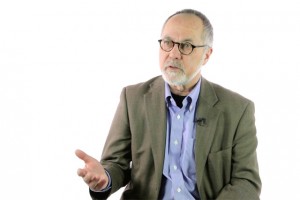Transmedia Storytelling as Supersystem
Media Scientist Renira Rampazzo Gambarato on the theory of systems, the elements of transmedia storytelling, a...
Social epistemology is an interdisciplinary field, which in a way I have pioneered. I’m not the person to have coined the phrase ‘social epistemology’, but in a way it’s a strange idea, because in the history of philosophy epistemology has normally been seen as the theory of knowledge, but usually understood in a very individualistic way. In other words, it is the relationship between the individual and the external world.
Social epistemology implies that somehow that’s not the right way to begin the problem of what the issue about knowledge is. The point is that we need a collective understanding of how the world is before we can talk about it. This is what social epistemology is about in a basic way. Within academic disciplines it turns out that philosophy has gone in a very individualistic way with regard to epistemology, where the social sciences, and sociology in particular, have had a more collectivist way of thinking about the nature of knowledge, so it’s been inherently more social.
My conception of social epistemology was very much about thinking, how can we take this kind of empirically grounded knowledge about how we understand the world, and how we’ve understood it in the past in a way that could actually benefit people in the future, so that we can take decisions about how we should go. The thing that’s interesting about the history of epistemology as a field of knowledge is that when we talk about decisions, what we should do on the basis of what we should believe. Historically this has been very much focused as an individual issue, not as a collective issue. Of course, in politics there’s a completely different way of looking at the matter. Within philosophy there’s still a kind of struggle to say that when we’re talking about decision-making, it shouldn’t just be individualistic, but it should be collective. Then the question becomes what’s the appropriate way, in which a collective decision should be made about the future of knowledge.
When we talk about knowledge in this sense we’re not just talking about what is true here and now, but what we’re talking about is the kinds of truths that are going to matter for the world we want to build together. There’s a collective social element in this. Traditionally both philosophy and sociology have not really addressed this question quite properly, they’ve addressed it partially.
I published this book, which was the first book on social epistemology in 1988, trying to bring these perspectives together. In other words saying that there is a serious problem of knowledge. In a way it’s kind of the problem that philosophers have traditionally dealt with. But philosophers have dealt with it purely at an individualistic level, whereas we need to bring a collective understanding, if we’re talking about all of humanity.
Academic knowledge is a great example of that kind of thing. Then that raises an additional problem, which is how then, if you’ve got a certain group of people, who captured a range of reality and have made it a form of knowledge, how are those people then made accountable to some larger group outside of it, who might depend on that form of knowledge? This is where the issue of why social epistemology is so much involved with issues having to do with democracy and the accountability of knowledge. I think there’s a general recognition that knowledge is something that in the first instance is produced by a relatively elite group of people. Then the question becomes how are those elite made accountable to a larger society that depends upon the knowledge that those elite produce. I think this is the question that we’re faced with today with regard to social epistemology. There are a lot of different kinds of political contexts, in which this question is being pursued around the world. Nevertheless, I think this is quite a fundamental question, and one that will remain with us in the future.

Media Scientist Renira Rampazzo Gambarato on the theory of systems, the elements of transmedia storytelling, a...

Sociologist Peter Kivisto on the attitude to religion, post-secularists and ‘The Secular age’

Psychologist Christopher Winship on social friction, the ‘Boston Miracle’, and researchers' contribution to ho...